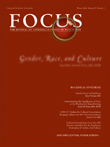Quick Reference for Posttraumatic Stress Disorder
| Depression after trauma (numbing and avoidance may be present, but not hyperarousal or intrusive symptoms) |
| Panic disorder (if panic attacks are not limited to reminders or triggers of the trauma) |
| Generalized anxiety disorder (may have symptoms similar to PTSD hyperarousal) |
| Agoraphobia (if avoidance is not directly trauma related) |
| Specific phobia (if avoidance is not directly trauma related) |
| Adjustment disorder (usually has less severe stressor and different symptoms) |
| Acute stress disorder (if less than 1 month has elapsed since trauma) |
| Dissociative disorders (if prominent dissociative symptoms are present) |
| Factitious disorders or malingering (especially is secondary gain is apparent) |
From Hollander E, Simeon D: Concise Guide to Anxiety Disorders. Washington, DC, American Psychiatric Publishing, 2003, p 58
| Past history of trauma prior to the index trauma |
| Past history of PTSD |
| Past history of depression |
| Past history of anxiety disorders |
| Comorbid axis II disorders (predictive of greater chronicity) |
| Family history of anxiety (including parental PTSD) |
| Disrupted parental attachments |
| Severity of exposure to trauma (more predictive of acute symptoms) |
From Hollander E, Simeon D: Concise Guide to Anxiety Disorders. Washington, DC, American Psychiatric Publishing, 2003, p 12
| Coursea |
| 4/5 of patients: longer than 3 months |
| 3/4 of patients: longer than 6 months |
| 1/2 of patients: 2 years’ duration |
| Minority of patients: symptomatic for many years or for decades |
| Predictors of worse outcome |
| Greater number of PTSD symptoms |
| Psychiatric history of other anxiety and mood disorders |
| Higher degree of numbing or hyperarousal to stressors |
| Comorbid medical illnesses |
| Female sex |
| Childhood trauma |
| Alcohol abuse |
a Data from Breslau N, Kessler RC, Chilcoat HD, Schultz LR, Davis GC, Andreski P: Trauma and posttraumatic stress disorder in the community: the 1996 Detroit Area Survey of Trauma. Arch Gen Psychiatry 1998; 55:626–632
From Hollander E, Simeon D: Concise Guide to Anxiety Disorders. Washington, DC, American Psychiatric Publishing, 2003, p 72
| Heightened physiologic responses to traumatic stimuli |
| Noradrenergic activation |
| Highly sensitized hypothalamic-pituitary-adrenal axis |
| Endogenous opioid dysregulation |
| Dysregulated serotonergic modulation |
| Hippocampal toxicity, decreased volumes |
| Limbic hyperactivity (amygdala, cingulate) and cortical hyporesponsivity (prefrontal, Broca’s area) to traumatic stimuli |
From Hollander E, Simeon D: Concise Guide to Anxiety Disorders. Washington, DC, American Psychiatric Publishing, 2003, p 102
Information & Authors
Information
Published In
History
Authors
Metrics & Citations
Metrics
Citations
Export Citations
If you have the appropriate software installed, you can download article citation data to the citation manager of your choice. Simply select your manager software from the list below and click Download.
For more information or tips please see 'Downloading to a citation manager' in the Help menu.
View Options
View options
PDF/EPUB
View PDF/EPUBGet Access
Login options
Already a subscriber? Access your subscription through your login credentials or your institution for full access to this article.
Personal login Institutional Login Open Athens loginNot a subscriber?
PsychiatryOnline subscription options offer access to the DSM-5-TR® library, books, journals, CME, and patient resources. This all-in-one virtual library provides psychiatrists and mental health professionals with key resources for diagnosis, treatment, research, and professional development.
Need more help? PsychiatryOnline Customer Service may be reached by emailing [email protected] or by calling 800-368-5777 (in the U.S.) or 703-907-7322 (outside the U.S.).

